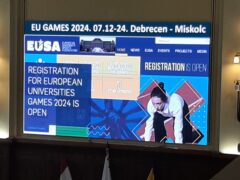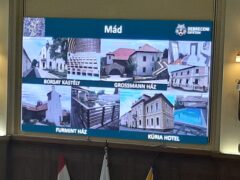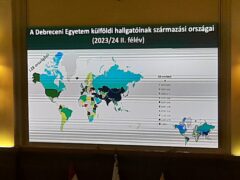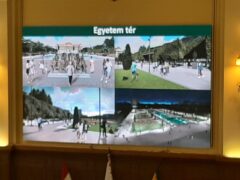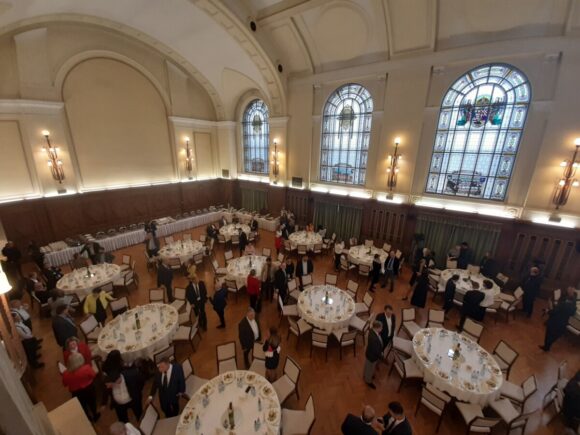The Debrecen model inspired the renewed higher education, which is both autonomous, serving the interests of the Hungarian nation and the Hungarian economy, flexible and competitive, said the Secretary of State responsible for innovation and higher education of the Ministry of Culture and Innovation on Friday at the University of Debrecen’s economic year launch partner meeting.
Balázs Hankó emphasized that the Debrecen model works: the connection of the university, the city, the region and economic actors.
He added that the model ensures the future potential and sovereignty of the Hungarian nation and economy.
According to the state secretary, Hungarian universities are characterized by openness to the economy and the labor market. Balázs Hankó pointed out that with innovation, universities, together with the connection of vocational training and adult training, can ensure 85 percent of employment in Hungary.
In addition to the students participating in the renewed training, the future potential is ensured by developing the system of science and innovation parks and increasing the number of researchers. The innovative and competitive Hungarian higher education holds its own on an international scale, which is indicated by the fact that Hungarian universities are achieving better positions in the various rankings year after year – he emphasized.
Balázs Hankó indicated that 43,000 foreign students are currently studying in Hungary – 7,000 of them at the University of Debrecen – and they want to increase their number to 100,000 by 2030.
In the end, the state secretary of higher education said “It is necessary to preserve normality in a world that is becoming abnormal”. He pointed out that Hungarian students were subjected to “sexual attacks” from Brussels when they were excluded from international programs. At the same time, he said the Hungarian government ensures their participation in international projects by taking over the costs of foreign partners.
Zoltán Szilvássy, the Rector of UD, indicated that as a result of extensive local collaboration, Debrecen is the only university in the country that has a functioning industrial park.
Debrecen mayor László Papp (Fidesz-KDNP) emphasized that the university’s development program is compatible with the city’s ideas.
Chancellor Zoltán Bács said that the University of Debrecen had a successful year thanks to the change of model operating on a contractual basis and is planning a similar one for 2024. The university’s membership – students and employees – already reached 47,500 people, the institution is counting on operational plans of HUF 230 billion and development plans of HUF 25 billion by 2024, he indicated.
The administrative service of the huge system is a huge task: more than one million HR measures are taken every year, twenty-one thousand employment contracts and contract changes are processed each year during the measures, hundreds of thousands of receipts and roughly 3.7 million accounting items are handled by the chancellery every year, not to mention the about daily tasks of development and operation – he brushed it off.
Zoltán Bács highlighted the business management model of the University of Debrecen, which the internal SAP Competence Center supports, and the German SAP audit deemed it a high-quality center in the top 25 percent of the world at the end of 2023.
The head of the university noted that this operating model and specialized internal service network are also considered special in the business sphere, as are the largest internet portal family of Hungarian higher education, unideb.hu, as well as Studyversity, which helps students in their daily lives, and Mediversity, which supports patient information.
The chancellor also reported on the UD MED healthcare system tailored to the special needs of the institution, which manages information related to outpatient and inpatient care, healthcare human resources, quality assurance and management, complemented by a reporting system that helps decision-makers.
Zoltán Bács added that, in the meantime, due to last year’s outstanding domestic and international admission results, the number of university students reached 31,000, which indicates the efficient operation of the institution in the increasingly intense higher education market.
(MTI)











